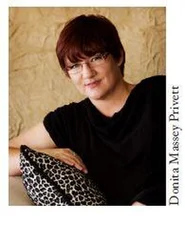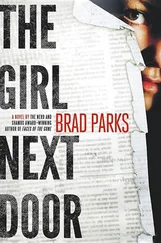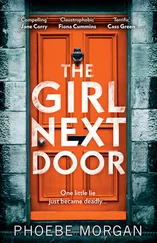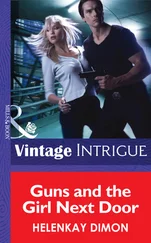‘So these were the foundations of Warlock?’ Quell asked.
‘No, no. Michael Winwood’s father told us not to play there any more. He stood at the opening to the tunnels and shouted at us to come out. Kids were obedient in those days. We did as we were told. We all came out and went home. After that we never went there again and at some point the foundations were filled in. I don’t know who took it upon himself to do that and you’ll never find out now. It was all farmland up there, and as soon as I could, our firm – that is, my brother Stanley and me – we bought as much as we could and one of the houses we built was Warlock. I reckon that was just sort of next door to where our tunnels had been. That would have been nineteen fifty-two or fifty-three.’
‘When you say you were playing there, what did you play? I mean, there can’t have been much to do in underground passages.’
They looked at him pityingly. He spoke from the age of computers and online games, from e-books, DVDs and CDs, Bluetooth and Skype, smartphones and iPads. They spoke from a distant past when everyone read books and most people had hobbies, made things, played cards and chess, dressed up and played charades, sewed and painted and wrote letters and sent postcards.
Alan had begun describing what they did: how they wrapped potatoes in clay and baked them on a fire they made in an old water tank; played sardines, a constant favourite; picnicked on cheese sandwiches; played cards; acted bits of history they liked, Mary, Queen of Scots and Rizzio – the mystified Quell had seen Mary Queen of Shops on TV but never heard of the Scottish queen – Henry the Eighth and his six wives, the death of Nelson. There was a fortune-teller, very popular this, who sat in a candlelit chamber of the tunnels and told everyone’s future, gazing into someone’s mother’s upturned mixing bowl. He faltered a little when he came to the fortune-teller but scarcely heard the doorbell until a low, somehow thrilling voice interrupted and Daphne Furness followed by a man who must be Michael Winwood came into the room.
Had he seen her in the street, he wouldn’t have known her. Of course he wouldn’t after sixty years. He only knew her now because who else could it be? She was elegant in a black suit, white silk shirt and very high-heeled shoes. Rosemary always said that elderly women couldn’t wear high heels, their balance was no longer good enough, but she could. Daphne could. Sometimes he glanced at those Saturday or Sunday supplements the newspapers included and it was the trend now to show pictures of grey-haired models in their sixties and seventies along with the young ones. It was one of those graceful elderly women, long-necked and slender, that Daphne reminded him of. He got slowly to his feet.
She and Stanley kissed, on the cheek, quick pecks and no hugs. Alan held out his hand and Daphne took it. Her fingers were thin and cool. All his memories of her were coming back, but it was the least significant of them that he now referred to.
‘I don’t suppose you remember, but you told my fortune.’
She smiled, showing perfect teeth that were probably crowns on implants. ‘And what was your fortune?’
‘You predicted a long and happy life.’
‘It’s been long, obviously. And happy?’
It was Rosemary who answered with a touch of asperity. ‘Very happy, thank you.’
Made impatient by the interruption and subsequent delay, Quell said, ‘I’d like to hear what Mrs Furness and Mr Winwood have to say about these tunnels of yours.’ He turned to Daphne. ‘Were there any grown-ups – adults, I should say – there with you?’
‘They didn’t know we were there. They didn’t know the tunnels were there, as far as we knew.’
‘Until my father kicked us out,’ said Michael Winwood.
Alan said, ‘I remember one grown-up coming. Just the once, I think.’ He looked from one to another of the now old children. ‘It was Lewis Newman’s uncle. I don’t know what he was called. Lewis called him Uncle James.’
‘He was young,’ said Rosemary. ‘I mean, they said he was young. I couldn’t tell whether someone was, say, twenty-three or forty. Lewis said, “Dad says he’s young to be an uncle.” I knew my dad was forty and my mum was thirty-eight, so he must have been a lot younger than that.’ She looked doubtfully at Quell. ‘Maybe it’s not important.’
Quell was looking as if everything he had heard came into that category. Even so, he asked everyone for their memories of the tunnels and one by one they gave him what they remembered. He neither made notes nor recorded what they said. Perhaps he had a good memory. When it was done and he had heard about the air-raid warnings, the bombs they expected but which never came to Loughton, the shrapnel from gunfire that lay in the streets for them to collect, the food they ate and hated but got used to, the sanctuary of the tunnels they called for some reason he never fathomed ‘qanats’, he asked for mobile numbers or addresses from all of them. He might want to get in touch. He said he’d like to know if they knew of anyone going missing when they were children, anyone disappearing. Please to let him know if they could remember. Rosemary wrote down their phone number and Maureen produced from a drawer a compliments slip with the name of George and Stanley’s firm on it.
Stanley had taken Spot out into the garden as he was in danger of having an accident on the carpet. Michael Winwood said that as they lived not far from each other, she in St John’s Wood and he in West Hampstead, Daphne was going to drive him home. Daphne produced a card from her handbag and than a strange thing happened. There must have been two cards stuck together, for as she leant across the table to pass one of them to Quell, its fellow detached itself and fell on the floor. While Rosemary was fetching her coat from the hallway, Alan quickly put his foot over the card. He was pretty sure no one but Daphne saw him. She met his eyes and gave him a tiny smile with closed lips. By the time Rosemary came back, he had retrieved the card by dropping his handkerchief and contriving to pick up card and handkerchief together.
Daphne’s car was not the expensive, subtly coloured high-powered Italian vehicle Michael would have expected but a silver Toyota Prius and by no means new. The road through the forest was much the same as it had been when he was young, but the old names seemed to have gone. Would anyone now have known what he meant by the Wake roundabout or the Epping New Road? Daphne drove them with ease and speed on to the M25 going anticlockwise. He had expected her to change her shoes before getting into the car, but she still wore the high heels, her driving unimpeded.
‘What did you think of all that?’ he said.
‘Pretty useless, I should think.’ They passed smoothly through the Bell Common tunnel, heading for Waltham Abbey. ‘Your mother had just died, hadn’t she? I mean, while we were going to the tunnels. That must have been hard for you.’
Michael hesitated, then said, ‘Everyone thought she’d died. My father put it about that she had, but she hadn’t. She’d gone off with someone. A man, I mean. They’d had an awful marriage. I was only nine, but I remember the way they screamed and shouted at each other like it was yesterday. My dad told me she wasn’t dead but I’d never see her again. It’s stayed with me, what he said, all these years. “She doesn’t want either of us,” he said. “Just wants to see the back of us.”’
‘But you saw her again?’
‘No, I never did. I was left with my father. He had some sort of heart condition so he couldn’t go into the forces. He didn’t want me either. I was sent to live with my aunt Zoe. She wasn’t really my aunt but my dad’s cousin. Mind you, Zoe was a lovely woman, she was very good to me and I was all right there with her. I loved her very much. Still do, she’s still alive.’
Читать дальше












